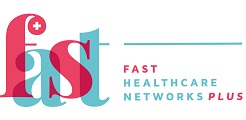Outcomes and outputs from the FAST Healthcare NetworksPlus and conclusions from the Network
This page incorporates all outcomes and outputs from the NetworksPlus, which ended officially in April 2021.
Brochure
The interactive pdf report showcases the workshops, projects and roadmaps as well as putting forward some high level conclusions.
Conclusions
The EPSRC FAST Healthcare NetworksPlus was set up with the aim of taking a systems-based engineering approach to enable improved patient treatment at lower cost through appropriate technological and medical advances. The Network has brought together researchers from a diverse range of backgrounds through our workshops to set out clinically-motivated research challenges and it has allowed new research teams to form to carry out initiator projects to build momentum.
By taking systems-based engineering as our common theme, the Network has a portfolio of projects covering some of the most pressing health conditions that individuals face in their lives: cardiovascular disease, cancer, osteoarthritis, stroke, asthma and even anti-microbial resistance. Engineering and physical sciences researchers have been able to make a difference in all of these areas, but only through effective collaboration with clinicians. In addition, the importance of engaging with the people who will be expected to use whatever is developed at the earliest stage is essential for long-term success, and this has been a persistent theme from the first workshop onwards.
Although the projects have been clinically very diverse, some common themes have emerged. One is the opportunity that technology and AI is affording to
allow people to be more precisely treated as unique individuals. The ability to collect personalised data and then compare this with what is known at population level opens up new possibilities for greater effectiveness of treatment at lower cost. This does not always need new physical technology: often we can use the data that is already generated around us or the hardware that currently exists for getting new data.
Another area is the power of longitudinal monitoring to understand an individual’s condition over time. This creates new challenges for data management, data security and personal privacy; therefore a system-based engineering approach is essential, but the opportunities for optimising treatment of conditions like cardiovascular disease are significant.
Roadmaps
Roadmaps were drawn up for the following areas as part of the Network:
- Roadmap of engineering and physical sciences research for optimising CVD assessment and treatment
- Engineering and physical sciences research roadmap for digital medicine, remote monitoring and self-management
- Raman spectroscopy as a clinical tool roadmap from workshop
- Early detection of cancer
Reports from Workshops
For the workshops for which formal reports were written, these can be found here as well as on the corresponding workshop pages:
Videos from all project PIs
All project leaders were asked to produce videos explaining what their project was about and what their main findings were. These are gathered here as well as being available from the relevant project pages.
